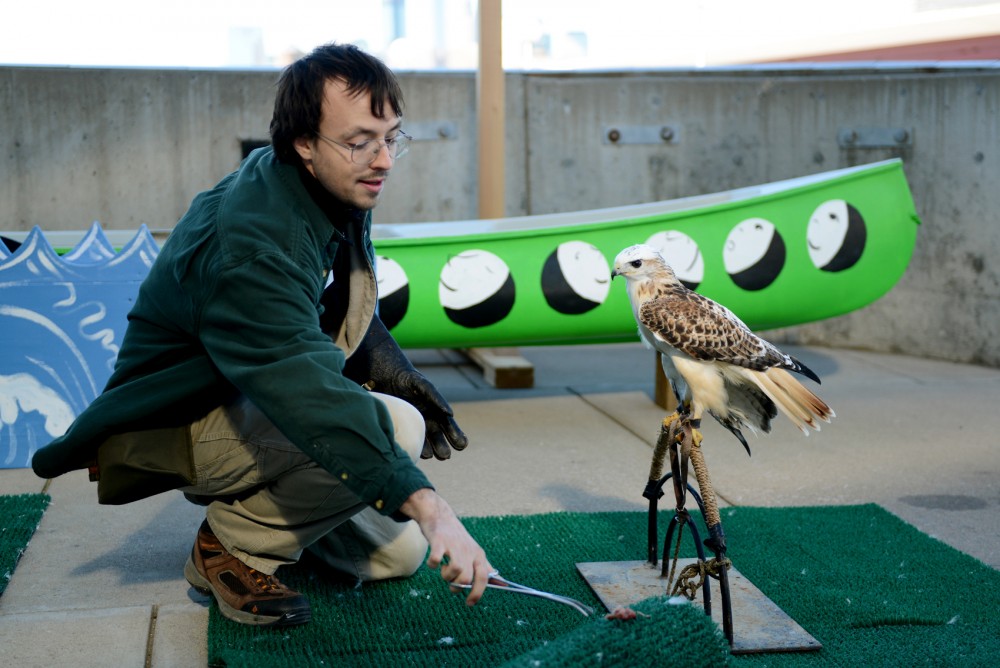To ease stress and brighten spirits, a new monthlong program is bringing nature to the University of Minnesota campus.
With midterms approaching, Nature Heals 30×30 is intended to improve the mental health of students and faculty members through outdoor activities and exposure to nature.
This is its first year at the University, and its organizers are already planning to return next year.
The program’s aim is to get all participants to spend at least 30 minutes a day outside for 30 days. This goal is based on research that suggests a connection with nature can improve physical and mental health, said Jean Larson, manager of Nature-Based Therapeutic Services at the University’s Center for Spirituality and Healing.
Every day, program participants can do activities like yoga or pumpkin carving — mostly outside the Weisman Art Museum.
“There is research that suggests that people who get outside tend to be healthier in general,” said Gary Christenson, Boynton Health Service’s Chief Medical Officer.
Larson said the initiative is based on the research of David Suzuki, an award-winning scientist and environmentalist, whose research foundation ran a 30×30 program in Canada for the past four years.
The program has partnered with groups like Pet Away Worry and Stress, which is known primarily for providing dogs students can play with to reduce stress.
“Students are so stressed, and we would like to make the museum a place students can come to de-stress and connect with themselves,” said Erin Lauderman, the director of marketing and communications for Weisman.
The 30×30 program at the University is a collaboration between the Center for Spirituality and Healing, the Minnesota Landscape Arboretum, the Weisman and Boynton.
“It’s a truly collaborative effort,” Christenson said.
The WAM Collective, the student group that serves as a voice for the museum, is trying to increase awareness of the initiative through blogging and running events like pumpkin carving, said Hannah Germaine, an officer for the group.
The Weisman has hosted the Raptor Center as well as the Bee Squad to increase student interest in nature.
Kit Breshears, communications director for the Center for Spirituality and Healing, said over 500 people had signed up before the program began. Around 2,000 people were participating in the program as of Monday, he said, and more students are signing up every day.
The Minnesota Landscape Arboretum serves as a venue for the scientific side of the program. For example, it hosted a research symposium on the benefits of nature to mental and physical health.


